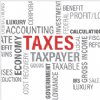February 2018
 Tax – Personal Income
Tax – Personal Income
Selling an inherited dwelling
Selling an inherited dwelling that was a main residence of the deceased, within two years of death, may be exempt from capital gains tax…
Are you?
– Selling a dwelling that you inherited?
At a glance:
– Selling an inherited dwelling that was a main residence of the deceased, within two years of death, may be exempt from capital gains tax.
You should:
– Check whether the two-year ownership period exemption applies to your situation.
– Contact us if you require any clarification or advice.
If you inherit a dwelling and later sell or otherwise dispose of it, you may be fully or partially exempt from capital gains tax (CGT).
Whether your inherited dwelling qualifies for the main residence exemption will be determined by factors such as:
- Whether the deceased person purchased the property before 20 September 1985;
- Did the settlement of the contract to sell the dwelling happen within two years of the person dying;
- Was the dwelling the deceased person’s main residence just before they died; and
Was the dwelling used to produce income just before the person died?
If the dwelling was inherited after 20 August 1996 and sold within two years of the person dying, the full main residence exemption may be available to the beneficiary even though the beneficiary has never used the property as a main residence.
This two-year ownership period can be extended by the Tax Office if delay in the property settlement was due to circumstances outside your control, such as:
- The ownership of a dwelling or a will is challenged;
- The complexity of a deceased estate delays the completion of administration of the estate; or
- Settlement of a contract of sale over a dwelling is unexpectedly delayed or falls through for circumstances outside the beneficiary’s or trustee’s control.
For more information click here.
Remember:
– The two-year ownership period may be extended upon application to the Tax Office.
This article was published on 30/01/2018 and is current as at that date
 Superannuation – Self Managed Funds
Superannuation – Self Managed Funds
Transfer Balance Cap Event-Based Reporting Webinar
The Tax Office is offering a free webinar to assist self-managed superannuation fund (SMSF) trustees to complete a transfer balance account report (TBAR) paper form…
Are you?
– A trustee or director of a corporate trustee of a SMSF
At a glance:
– The Tax Office is offering a free webinar to assist self-managed superannuation fund (SMSF) trustees to complete a Transfer balance account report (TBAR) paper form.
You should:
– Consider watching the free webinar.
– Contact us if you require any clarification or advice.
From 1 July, 2017, superannuation trustees need to provide the Tax Office with information regarding transfer balance cap events, such as:
- New Income Streams in the retirement phase on or after 1 July 2017;
- The date and value of amounts commuted from a member’s income stream; and
- Certain limited resource borrowing arrangement repayments.
The Tax Office has prepared a webinar to provide a step-by-step guide to completing the fields on the TBAR form to report common transfer balance cap events.
The topics covered are:
- TBAR;
- Purposes of TBAR;
- What income stream providers need to report;
- What income stream providers do not need to report;
- SMSF TBAR due dates; and
- How to complete the report.
Presentation slides for the webinar can also be downloaded.
For more information, click here.
Remember:
– Check the Tax Office website regularly for other webinars that may be relevant.
This article was published on 30/01/2018 and is current as at that date
 Businesses
Businesses
Changes to accessing the Small Business Super Clearing House
On 26 February, 2018, the method businesses access the Small Business Super Clearing House (SBSCH) will change…
Are you?
– Using the Small Business Super Clearing House in your small business?
At a glance:
– On 26 February, 2018, the method businesses access the Small Business Super Clearing House (SBSCH) will change.
You should:
– Use the SBSCH decision tool to determine how your business will access the clearing house in the future.
– Contact us if you require any clarification or advice.
On 26 February, the Small Business Super Clearing House (SBSCH) will be available through the Tax Office online services rather than a standalone website.
The Tax Office anticipates that this will streamline the use of the SBSCH for users and will include extra functionality, such as the ability to sort employee listings and pay by credit card.
The SBSCH will be available via the Tax and BAS Agent Portals under the ‘Manage Employees’ menu
Further, access to the SBSCH will also be within the Business Portal.
How you access the SBSCH when it joins the Tax Office online services will depend on your situation, such as whether you:
- Use a tax professional to lodge your super guarantee information;
- Are a small business with or without an Australian Business Number (ABN); or
- No longer wish to use the SBSCH.
To assist with deciding how to access the SBSCH from 26 February, 2018, the Tax Office have prepared a SBSCH decision tool, click here.
The SBSCH will be unavailable from 20-25 February, 2018 while the Tax Office transfers the data into its online services.
For more information click here.
Remember:
– If you pay your super guarantee monthly, you may need to consider the system outage towards the end of February.
This article was published on 30/01/2018 and is current as at that date
 Businesses
Businesses
Taxable payments annual report for building and construction services business
Building and construction services businesses are required to lodge a Taxable payments annual report with the Tax Office…
Are you?
– involved in the running of a building and construction services business?
At a glance:
– Building and construction services businesses are required to lodge a Taxable payments annual report with the Tax Office.
You should:
– Ensure your business meets its tax obligations.
– Contact us if you require any clarification or advice.
The Tax Office has prepared a list of occupations and work activities that meet the definition of building and construction services.
An entity which is in the building and construction industry must lodge a Taxable payments annual report if:
- Business paid contractors for building and construction services; and
- The main business activity is listed under the following Australian and New Zealand Standard Industrial Classification (ANZSIC) codes:
- Construction 30110 to 32990;
- Architectural Services 69210;
- Surveying and Mapping Services 69220; or
- Engineering Design and Engineering Consulting Services 69230.
Penalties may apply for not lodging annual report by the due date which is the August 28 of each year.
Taxpayers can lodge their annual report through a registered tax agent online or a paper form.
If you are in the building and construction services industry but do not pay contractors for building and construction services, you may be able to submit a ‘Taxable payments annual report – Not required to lodge’ form, click here for more information.
For more information, click here.
Remember:
– Ensure to lodge Taxable Payments Annual Report prior to August 28 each year.
This article was published on 30/01/2018 and is current as at that date
